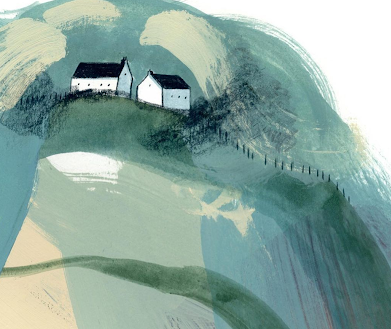*Spoilers ahead
28 Days Later is a post-apocalyptic movie released in 2003, framing how society fares during a widespread disease which turns humans into zombie-like creatures that thirst for flesh and blood. Its entire premise may sound cliché, but its singularity lies in the timeframe—it only takes 28 days, a month, for the world to crumble, falling into a shadow that remotely resembles the past.
It starts off with the main character, Jim, waking up in a hospital bed; he’s confused, disoriented, and most importantly, all alone. The movie is set in London, a city usually bustling with people and filled with haphazard chatter. However, as Jim roams the streets, they’re empty; completely barren and devoid of any signs of life. Bewildered, he wanders into a seemingly empty building, and after some exploring, a hunger-driven shell of what used to be a priest attacks him. That’s when the scene of the movie is set: he’s by himself amidst a zombie apocalypse.
Now, you might expect the story to progress like any old zombie movie; he finds a few friends, maybe a girlfriend, and they build a base for safety and life happily ever after, a trademark Hollywood ending. And in some ways, it adheres to that standard; Jim does end up finding a group of people to stick with. They stick together throughout most of the movie, with the goal to reach a hideout they heard about through a ratty radio.
Nearing the end of the movie, Jim and the others find a secluded building while on their hunt for the so-called hideout, where various men who claim to be ex-soldiers have created a fortress with running water, food, and even electricity. This, they realized, was the safety they were looking for. Though, after they settled in and received a tour of the place, the cracks beneath the fortress’ facade began to show.
The soldiers residing within the fortress are stingy, judgmental, and predatory. They’ve been away from civilization for so long, seen so many things, that they’ve forgotten how to be gallant with others. So much so that they start engaging in distressing acts towards the two female protagonists; the daughter and the young woman. The scene is grotesque, with the soldiers saying out-of-pocket things and making inappropriate advances to both of them.
This single five minute part of the movie is enough to concretize the idea that the social construct humanity has created is flimsy with a miniscule margin of error, meaning that anything is enough to send humanity into complete anarchy, with primitive survival instincts and gut feelings being the only thing driving people’s motivation. This is especially true for the soldiers here, since you’d expect them to be the most logical of the bunch, having already strategized in war and prepared for dangerous battles.
Their attitudes within the apocalypse hold the arrogance of somebody who is civilized, but none of the mannerisms. In the end, 28 Days Later shows how easily society can fall apart. When rules and order disappear, people lose their sense of right and wrong, and their true instincts start to show.













